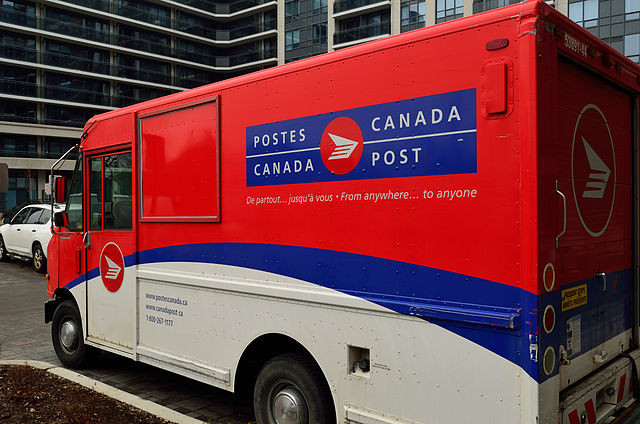A possible Canada Post strike, potentially impacting mail and parcel delivery services across Canada, is looming on the horizon. The Canadian Union of Postal Workers (CUPW) issued a 72-hour strike notice on Tuesday, setting a Friday deadline for potential job action. The strike could significantly impact many Canadians and businesses who rely on the mail system for essential services, including government benefit payments, new passports, and other important correspondence.
Potential Impacts of a Canada Post Strike
The potential disruption to mail delivery services comes at an inopportune time, coinciding with the peak holiday season. While Canada Post has pledged to work towards minimizing disruptions, the potential for delays and service interruptions remains a concern. The Crown corporation has emphasized the possibility of “immediate and prolonged ripple effects” should workers strike or be locked out on Friday.
Concerns for Businesses and Individuals
Small businesses across Canada are expressing anxieties over the potential impact of a Canada Post strike. Several businesses rely heavily on Canada Post for shipping and receiving goods, and disruptions could lead to delays in fulfilling orders and potentially impacting revenue.
Beyond businesses, the strike also raises concerns for individuals. Many Canadians rely on the mail system for essential services, including receiving benefit cheques, essential documents, and medications. The potential disruption could create significant challenges for those who rely on the postal service for critical items.
Alternatives to Canada Post
With the looming threat of a strike, individuals and businesses are exploring alternative shipping options. Private courier companies like UPS and FedEx provide options for expedited shipping, albeit often at a higher cost.
Some online businesses have already begun to explore alternative delivery methods. Mark Thompson, a professor at the University of British Columbia, suggests that the union’s bargaining leverage is heightened during the holiday season, a factor that could incentivize businesses to seek out alternative shipping solutions.
The Government’s Role
The federal government is urging both Canada Post and the CUPW to reach a negotiated settlement before the deadline. Labour Minister Steven MacKinnon has expressed the government’s commitment to facilitating discussions, highlighting their desire for a peaceful resolution.
While back-to-work legislation played a role in resolving a previous postal strike in 2018, intervention in this instance seems less likely. With the current minority government facing procedural disputes between the Liberals and Conservatives, legislative action appears unlikely.
The Union’s Perspective
CUPW is pushing for improved wages and working conditions for postal workers. The union is advocating for better rights for temporary employees, increased paid medical days, and enhanced meal and rest periods. They have stated that despite efforts to reach an agreement, both parties remain “far apart on many issues.”
Canada Post’s Position
Canada Post has proposed a four-year contract with annual wage increases of 11.5 percent, continued defined-benefit pensions for current employees, and assurances regarding job security and health benefits. However, CUPW rejected this offer.
Canada Post has also highlighted its deteriorating financial situation, emphasizing the need for adjustments to maintain its delivery network. The Crown corporation reported losses of $748 million last year and $490 million in the first half of this year.
The Path Forward
As the deadline approaches, both sides are engaging in last-minute negotiations. The possibility of a strike remains real, but the potential impact on individuals and businesses is undeniable. Both sides are likely feeling the pressure to reach a resolution, especially as the holiday season draws closer. The hope is that both Canada Post and CUPW can come to an agreement that addresses the concerns of both parties, ultimately preventing the disruption of essential mail services.
Navigating the Uncertainties
The situation remains fluid and uncertain. The best course of action is to stay informed about developments and consider potential alternatives for essential mail services. While a resolution may be reached before the strike deadline, the possibility of disruption remains a concern. It’s prudent to prepare for potential delays and disruptions in mail delivery, especially as the holidays approach. Staying informed and adapting accordingly is key to navigating these uncertainties.

















